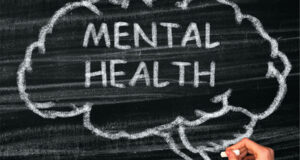
H.A.R.D. Conversations
BY , MSN, BSN, NE-BC, CCM, FAAN
The theme of this issue of CMSA Today is “case management and COVID-19.” As I thought about how COVID-19 has impacted our lives in so many ways, I realized that few conversations occur without COVID-19 peeking through…like the last bit of daylight forcing its way through a window blind, reminding us that every decision, every plan, every occasion must consider the influence of COVID-19.
Discussions around COVID-19 are not getting easier, but rather more complex, confusing, and hard. I have committed to a renewed effort of pushing through these hard conversations by Having A Rapport Directly (H.A.R.D.) with the person or group openly, transparently, and courageously. Having a rapport with someone requires work and deliberation.
To establish a rapport is to build a relationship or create an affiliation or fellowship. The antonym to rapport is friction. Talking about COVID-19 and all of its impacts must center around the ideals of understanding, connection, and empathy. If it is my family, then relationship is the glue that holds us together. If it is my colleagues, affiliation is the glue that keeps us connected. And, with friends and neighbors, fellowship is the common thread. So, I have concluded that developing a different kind of rapport around COVID-19 is necessary to facilitate H.A.R.D. conversations.
The holiday season is upon us, and I am having H.A.R.D. conversations with my family about COVID-19. There are stressors around virtual schools, job uncertainty, and family gatherings. My 20-year family tradition is to gather at a sibling’s home for Christmas. This year is my turn, and I have attempted to “prescribe” how to travel and what to expect upon arrival as it relates to COVID-19 prevention. Very few family members want to hear it, and there is little trust about the “right way” to prevent infection or if there should be any concerns. The conversations around COVID-19 are hard because they inevitably morph into politics or “our state rules are _____” or “our local news stations say_____” or “we are family and we will be okay.” I have transitioned to H.A.R.D. conversations by creating a rapport directly based on science and simple prevention techniques, using diverse sources of information. It is important to convey to recipients (in my case, family) that hard conversations are started because one deeply cares about their well-being.
Citing diverse sources of information, going back to basics, and using animation have been successful strategies. If nothing else, there are enough options in reference sources to coalesce around a common understanding of COVID-19 prevention. For example, I have cited the National Institutes of Health to convey the research behind the novel coronavirus, focusing on the global efforts to understand how the virus behaves: “Most transmissions of severe acute respiratory syndrome coronavirus 2 (SARS-CoV-2) are thought to occur through respiratory droplets, and the risk of transmission can be reduced by covering coughs and sneezes and maintaining a distance of at least 6 feet from others. When consistent distancing is not possible, face coverings may further reduce the spread of droplets from individuals with SARS-CoV-2 infection to others. Frequent handwashing is also effective in reducing the risk of infection.” https://www.covid19treatmentguidelines.nih.gov/overview/prevention-of-sars-cov-2/
I have approached the scientists in the family by referencing non-profit science publications as sources of information. For example, the non-profit American Association for the Advancement of Science publishes a science magazine with articles that describe the biology of the coronavirus and how it produces the immune response in humans. For the clinicians in the family, I refer to the Mayo Clinic’s website, where one can find excellent descriptions of the novel virus disease process after infection occurs: https://www.mayoclinic.org/diseases-conditions/coronavirus/in-depth/coronavirus-transmission/art-20482397
My favorite source for non-scientists, non-clinicians, and general skeptics is a website called Medical News Today. This site, https://www.medicalnewstoday.com/articles/coronavirus-myths-explored, lists 28 common myths around COVID-19 and offers a concise, clear explanation to almost any claim made by potentially biased sources. But my all-time favorite that I used for the kiddos, teenagers, and even some of the adults, is the animated representation of “how to kill the virus with handwashing” found at https://healthmatters.nyp.org/how-does-handwashing-with-soap-kill-the-coronavirus/.
Note that CMSA, CMSA Today or any affiliates, do not endorse or imply endorsement of these organizations, publications or websites. I share these sources as an example of how I return to basics to engage in H.A.R.D. conversations with others. In this current environment of misinformation, skepticism, confusion, or fatigue, we must maintain vigilance and demonstrate resilience in our battle against COVID-19. Most importantly, we must resist information overload and try to identify sources that help us be successful with H.A.R.D. conversations.
I worry about my family, my colleagues, and my friends. With this approach to the H.A.R.D. conversations I want to have with each of them, I am hoping that I can establish – or build upon – a rapport that could result in their avoiding contracting this terrible virus. I share these ideas with you, my case manager friends and colleagues, to perhaps help you with your complex and confusing discussions with those whom you have a rapport.





